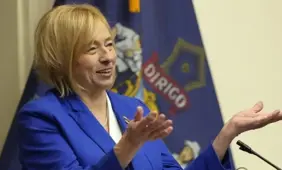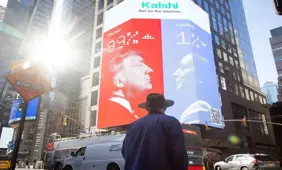Political Gambling on US Elections Jeopardizes Democratic Process

In a recent correspondence directed at the Commodity Futures Trading Commission (CFTC), a coalition of lawmakers has voiced their apprehensions regarding the burgeoning trend of betting on political events and its potential repercussions.
The emergence of wagering on political occurrences has gained notable traction in recent times. Analogous to the realm of sports, political event betting involves speculative wagers on aspects such as election outcomes and the trajectory of candidates' campaigns.
Comparable to the concerns that accompanied the expansion of sports betting in the United States, lawmakers are now raising analogous concerns about the implications of betting on political events, particularly within the framework of US elections.
Concerns about US Elections
The impetus behind the lawmakers' concerns stems from a private predictions company called Kalshi, which has communicated its intentions to the CFTC. In a missive to the Commission, Kalshi conveyed its desire to offer "event contracts on the outcomes of US elections." Effectively, the company seeks regulatory authorization to facilitate for-profit gambling predicated on political developments.
Senators Chris Van Hollen, Jeff Merkley, Sheldon Whitehouse, Edward J. Markey, Elizabeth Warren, and Dianne Feinstein have collectively articulated their apprehensions in a letter dispatched to the CFTC. Within this letter, they urge Rostin Behnam, the Chairman of the Commission, to repudiate Kalshi's overture.
Central to their concerns is the potential commodification of the democratic process. The letter vehemently posits that the commodification of elections would invariably impinge upon the integrity of the democratic process. The lawmakers emphasize that such a trajectory would not only contravene the public interest but also potentially undermine the very foundation of the political system.
The letter cogently contends, "There is no doubt that the mass commodification of our democratic process would raise widespread concerns about the integrity of our electoral process." In essence, the lawmakers underscore the incongruity between the principles of democracy and the prospect of gambling dictating political outcomes.
Risks of For-Profit Political Gambling
Furthermore, the lawmakers highlight the possibility of cascading ramifications should such an approval be granted. Should Kalshi's proposal receive the CFTC's nod, it could pave the way for a statewide culture of for-profit gambling on political events. This, according to the lawmakers, has the potential to inject distortions into the electoral process and engender skepticism concerning the authenticity of election results.
A poignant concern outlined in the letter revolves around the vulnerability of the electoral process to manipulation by vested interests. The lawmakers express reservations that affluent entities could exploit the commodification of politics to further their own agendas and potentially sway the outcome of elections.
The collective of lawmakers assert that the sanctity of the democratic process should not be jeopardized by the introduction of a commercialized gambling dimension. Their plea to the CFTC to dismiss Kalshi's proposal is rooted in their conviction that the integrity of the US political landscape should remain untainted by the influence of for-profit ventures.
More Regulation News
RELATED TOPICS: Regulation









Review this New Post
Leave a Comment
User Comments
Comments for Political Gambling on US Elections Jeopardizes Democratic Process